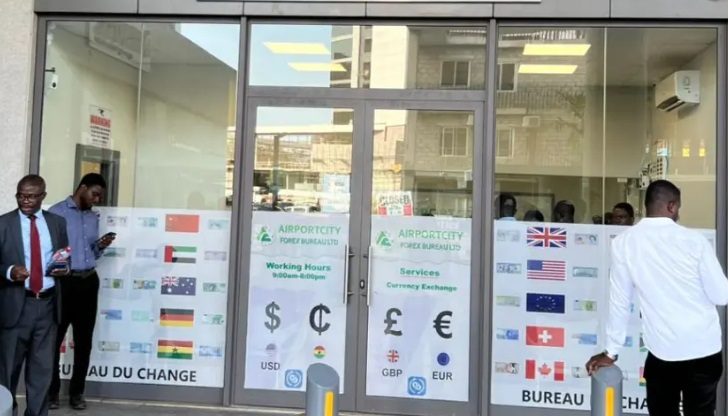
Ghana’s thriving informal foreign exchange market is bracing for unprecedented disruption as the Bank of Ghana rolls out sweeping new regulations aimed at curbing illicit dollar trading.
The measures, set to take effect on 1 September, target unauthorized forex dealings that have long undermined the cedi and fostered a lucrative parallel market.
The central bank’s crackdown introduces strict declaration requirements for travelers and importers carrying significant amounts of foreign currency. Inbound travelers with more than $10,000 must now complete FX-5 forms and provide proof of origin, including bank withdrawal slips or purchase receipts from their departure country.
Outbound travelers carrying over $50,000 will face even tighter scrutiny, with mandatory bank documentation, forex bureau receipts, and supporting contracts or invoices.
Importers are also under the microscope. They must present endorsed bank slips, valid Import Declaration Forms, and relevant commercial documents to justify transactions. Non-compliance could result in seizure of funds, heavy fines, or criminal prosecution under anti-money laundering laws.
The move comes as black market exchange rates hover between GH¢11.60 and GH¢12.10 per dollar, far above the Bank of Ghana’s official rate of GH¢10.75 to GH¢10.95. The premium reflects persistent demand from businesses and individuals unable to access dollars through formal banking channels.
For years, the informal forex market has served as a pressure valve, meeting needs of import-dependent businesses, parents paying overseas tuition, and real estate investors. Traders, often sourcing dollars through remittances and unregulated networks, charge steep premiums to cover scarcity risks.
Analysts say the success of the new regulations hinges on commercial banks’ ability to meet increased demand for foreign currency. Without improved availability and faster processing times, the rules risk driving transactions deeper underground.
Tourism and business travel could also be affected, as stricter documentation requirements make cross-border money movement more cumbersome. Meanwhile, banks are expected to face mounting pressure to expand forex services and digitise operations to retain customers.
The Bank of Ghana views the policy as a step toward formalising the economy and narrowing the gap between official and parallel exchange rates. However, enforcement remains a challenge in a country where porous borders and well-entrenched trading networks have historically adapted to regulatory clampdowns.
Whether these measures will stabilise the cedi or merely shift the market’s dynamics underground remains an open question as Ghana navigates this critical turning point in its financial policy.



